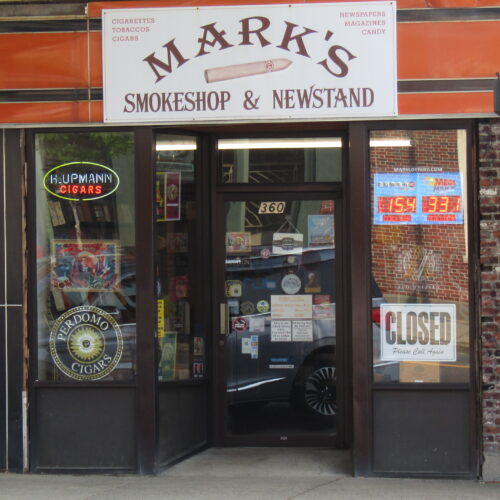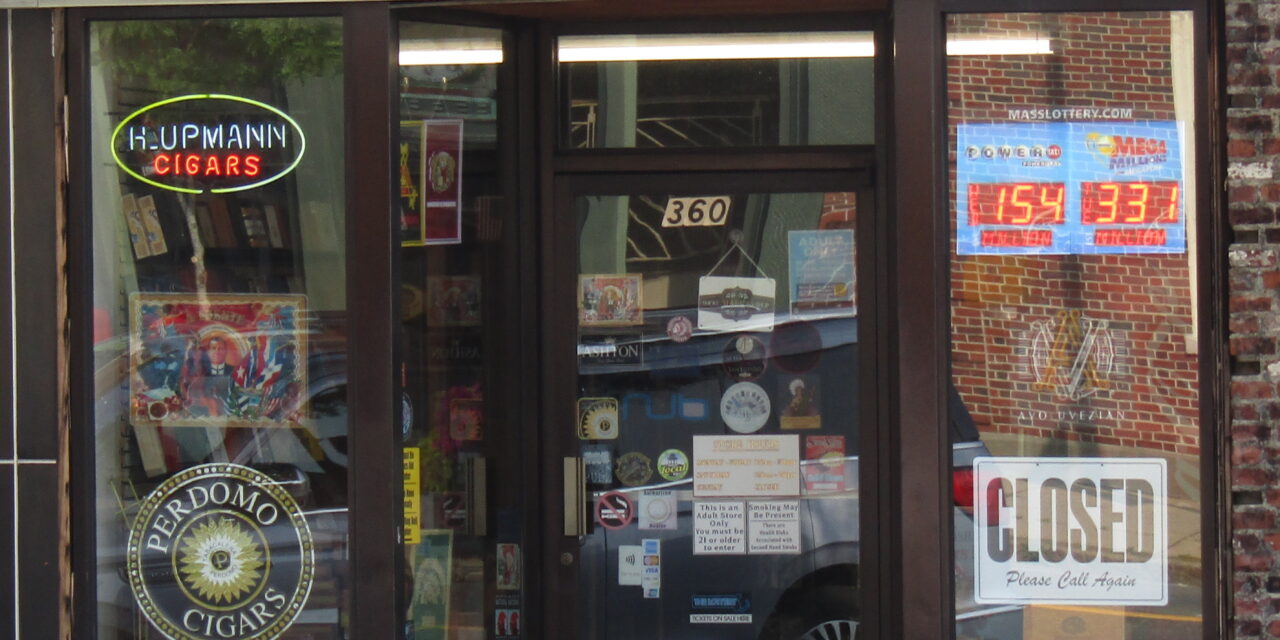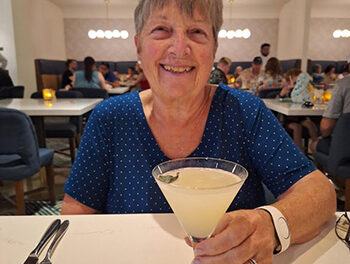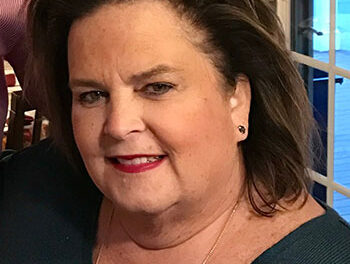
THE OWNER of Mark’s Smoke Shop in the Square doesn’t want to see the day when 30 or 40-year-olds can’t buy a premium cigar. (Mark Sardella Photo)
By MARK SARDELLA
WAKEFIELD — Is the “nicotine-free generation” regulation, adopted last March by the Wakefield Board of Health, a draconian, one-size-fits-all approach that unfairly targets certain tobacco products, as tobacco retailer Mark Panagakis of Mark’s Smoke Shop on Main Street maintains?
Or is it a “slow phase out” of tobacco sales, aimed at eliminating the addiction, disease and premature deaths caused by tobacco products, as Maureen Buzby, Regional Tobacco Program Coordinator for the Mystic Valley Public Health Coalition, contends?
Under the Nicotine Free Generation initiative, no one born on or after Jan. 1, 2004 can ever be sold tobacco products. Supporters of the policy say that enforcement is simplified because the date of birth for tobacco sales never changes.
But Panagakis maintains that most people have not thought through the implications of the permanent age limit, noting that eventually, even a 30 or 40-year-old adult will not be able to legally purchase a cigar.
But that’s precisely the goal, anti-tobacco advocates readily admit. Buzby told the Wakefield Town Council last fall that the initiative amounts to a “slow phase out” of tobacco sales, by gradually increasing the minimum age for purchasing tobacco products.
No one who is already 21 years old would lose the ability to purchase tobacco products, Buzby explained. A permanent age restriction will also limit young adults buying tobacco products for juveniles, as the minimum age at which one can legally buy tobacco gets higher each year, effectively phasing out the supply chain for youths.
But Panagakas insists that the one-size-fits-all regulation unfairly targets stores like his, which specializes in premium, hand-rolled cigars and does not sell more addictive tobacco products, like cigarettes. He contended that the premium, hand-rolled cigars that he sells do not have the same addictive qualities as other tobacco products and are consumed in much the same way as someone would have an occasional glass of wine.
Panagakas cites a letter that Cody Carden of Cigar Rights of America (CRA) sent to the town of Reading before they also adopted a generational tobacco ban.
“While CRA understands the importance of addressing public health concerns related to tobacco,” Carden wrote, “we firmly assert that generational bans are not the appropriate means to achieve these goals. CRA believes a more comprehensive approach to tobacco control that respects individual liberties, recognizes the diversity among tobacco products and preserves the interests of the cigar industry must be taken into account before any proposal can be seriously considered.”
Despite the letter from CRA, Reading went ahead and adopted the generational tobacco ban, joining Wakefield, Malden, Melrose, Reading, Stoneham and Winchester.
Speaking to the Town Council last fall, Buzby stressed that tobacco use is still the leading cause of preventable death in the United States. She talked about some of the federal bans and other restrictions as well as the regulations passed by local health boards, such as restrictions on flavored tobacco products.
Wakefield’s generational tobacco ban even caught the attention of national magazine “Cigar Aficionado,” and not in a positive way.
“It sounds ludicrous, but it’s something that’s happening in an increasing number of places, including Brookline, Stoneham, Wakefield and Melrose,” an editorial in the magazine opines. “Bans such as these may sound silly or bizarre. But there are politicians out there who have made it their goal to eradicate what is a legal product for adults: cigars and other tobacco products. Just as more and more cities and towns are embracing marijuana, a drug that is banned for recreational use by roughly half the United States, more and more are making it harder for cigar smokers.”
Panagakis likens the Wakefield Board of Health that enacted the generational tobacco ban to the Women’s Temperance Unions of the 1920’s that tried to ban alcohol.
“We know where that got us,” he said. “Prohibition doesn’t work.”





